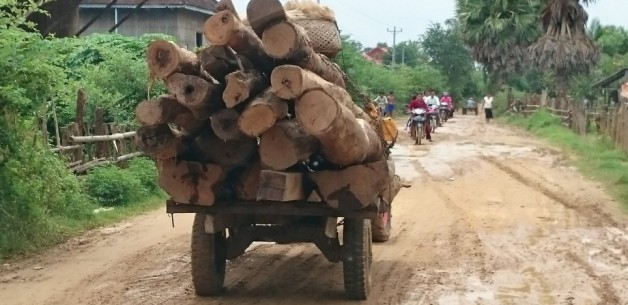This post is also available in: Spanish
World Bank Funded Land Allocation for Social and Economic Development (LASED) Project in Cambodia
On Tuesday, finance ministers from around the world concluded the third negotiation for the 18th replenishment of the International Development Association (IDA), the World Bank’s fund for the poorest countries. While IDA should be focusing its investments in areas and sectors that promote sustainable development, the priorities currently being negotiated for IDA that will shape its investments over the next three years are missing critical commitments around forest and forest community protection, which are key to reducing greenhouse gas emissions as well as poverty. In advance of the final negotiation meeting in December, IDA member governments should insist that strong targets be set for forest and forest community protection in the final IDA18 agreement.
Protecting forests is a cost effective way to reduce poverty, mitigate climate change, and increase adaptation to climate change impacts. In coordination with strong land tenure reforms, which are also a key element of good governance practices, community forest management is crucial for poverty reduction. Forests not only serve as natural carbon capture and storage systems, but also reduce vulnerability to natural disasters, provide employment, and contribute to food security and access to clean water.
Yet, despite committing to support landmark global agreements, including the Sustainable Development Goals and the Paris Climate Agreement that elevated the importance of forest protection in the intertwined battles against climate change and poverty, the Bank has taken few concrete steps to ensure its portfolio is consistent with these commitments. The Bank currently invests much more of its resources in the primary drivers of deforestation and degradation, including energy, mining and transportation, than in forest and land protection. IDA18 offers a crucial opportunity for the Bank to change course and align its practices with its rhetoric.

World Bank Funded Pro Routes High Priority Road Rehabilitation and Maintenance Project in the Democratic Republic of Congo (DRC)
We welcome the inclusion of climate change, governance, and gender, among others, as “special themes” for IDA18, and urge the World Bank to ensure the specific commitments on these themes in the final IDA agreement support parallel commitments made in Paris and the SDGs. The IDA agreement, set to be adopted early next year, should embrace forest protection as an integral part of the World Bank’s portfolio, and acknowledge that forest protection can lead to poverty reduction and equitable prosperity by contributing to traditional and sustainable livelihoods. At a minimum, the final IDA18 agreement should specifically commit to the following:[1]
- Support for IDA countries in securing land tenure of indigenous and forest-dependent communities as well as smallholder farmers, including strengthening community management of natural resources and recognition of collective and traditional tenure systems.
- Mobilization of significant resources for community-based forest management, and to support countries in delivering on commitments related to forests in their NDCs.
The opportunity offered by IDA18 to make strong, clear commitments around forests that are genuinely aimed at achieving global climate and development goals as well as promoting a streamlined and progressive forest and land agenda within the World Bank should not be missed.
[1] See detailed recommendations developed by BIC, in partnership with Conservation International here.

